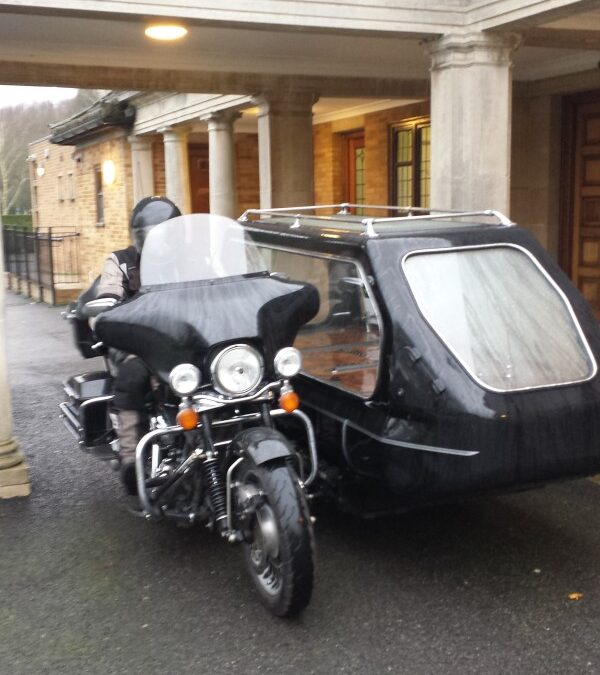
by Michael | Aug 9, 2016 | Blog
We all know the saying, “The only certainty is death.”
Visiting Bereaved Families
As a funeral celebrant, I am only too well aware of its truth. I visit bereaved families as a matter of course, although no two visits are the same.
I don’t go as a counsellor or psychotherapist. I’m not trained for that. I do sometimes give an opinion, when it’s called for, but always explain that it’s a personal opinion only.
At my visits, I see families in various stages of grief. Some are angry, some so sad; others feel responsible in some way for the death. A lot of family members don’t understand what has happened; many feel numb and confused. I remember being baffled by one family (a father, three sons and a daughter) who spent the whole of my visit cracking jokes (often very funny ones!), and making it very hard for me to get anything done. However, when I saw them weeping at the funeral, I understood that that had been their way of coping.
Preparing the ceremony
The purpose of my visit specifically is to help the family draw up a bespoke funeral service that satisfies their feelings (and respects the wishes of the deceased). Some know exactly what features they want; others don’t know what to expect. I talk them through the day, and, where necessary, offer them suggestions and, of course, answer their questions. There are, understandably, often a lot of these.
My families value my experience and, together, we draw up an outline ceremony. This includes the music and whether other participants are to be involved (and how). My aim is to have a full “script” by the day of the funeral, so, once I’ve gone home, basing myself on what I’ve learned during my visit, I source a variety of texts and poems to complete the outline.
I then send this draft as an e-mail to the family, partly so they can check for any errors, partly so they can tell me if they want any readings amended or even replaced.
After a further e-mail or two, the service will have been approved by the family and is ready for me to conduct.
The family will be as ready as they can be for the funeral.
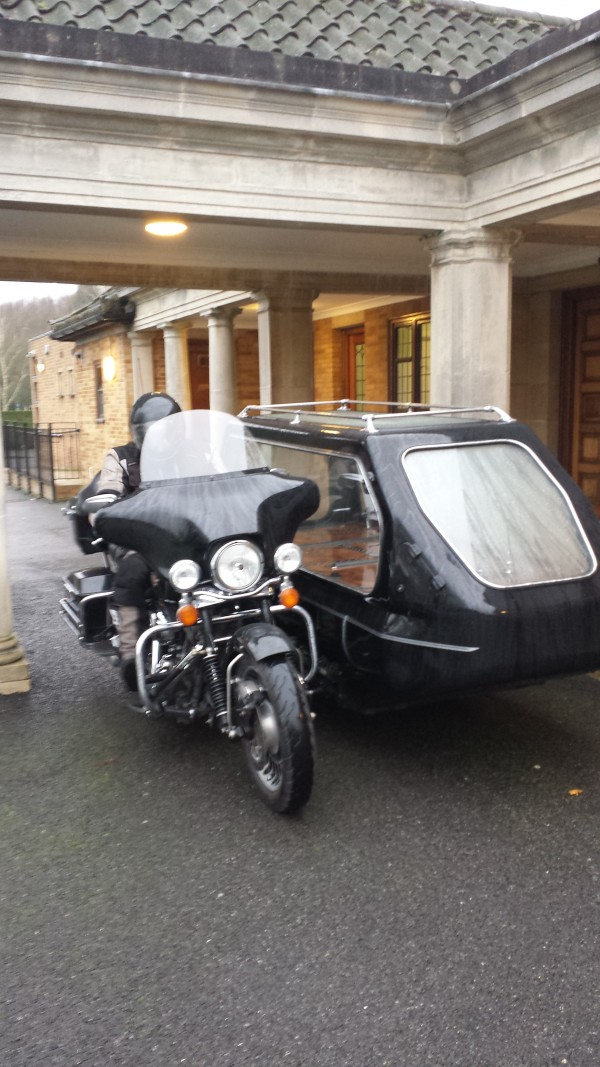
The Eulogy
I have deliberately kept the eulogy till last, although it is usually one of the most important elements. Very occasionally, this is dispensed with (either because not enough is known about the deceased or the latter was considered a nasty piece of work and discretion is preferred!). However, in about 98% of cases, there will be a eulogy, either written and delivered by a close relative or friend or delivered by myself, following my family visit.
In order to produce a successful eulogy, I need to ask the right questions (and heed the answers). I understand that the guests will vary from relatives to friends to former work-mates, so the biography has to paint a rounded picture of the individual. In addition to the dates and headings, anecdotes are essential. A lot of people need to be persuaded that there can be a place for humour in a service (although it will depend on circumstances).
As a guide, four minutes would be the optimal length for this, although that may depend on the individual concerned. There may be tributes as well – ideally, quite personal and also brief.
At the end of the eulogy, I want people to feel that I have been able to capture the essence of the deceased, and that I have (if you forgive the awful metaphor!) put flesh on to the bones of the biography.
Many people surprise themselves during my questioning. They clearly enjoy trawling through their memory banks and remembering some lovely experiences with the deceased.
I know I am very privileged to help people at such a complex and challenging time in their life, and I am so pleased when I get fulsome testimonials after the funeral. It’s a wonderfully satisfying feeling to know that I have been able to make a difference at such a trying time.
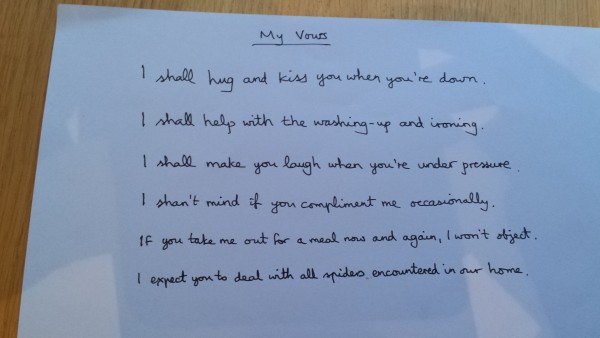
by Michael | Aug 2, 2016 | Blog
If you’re the bride or groom, all eyes are going to be on you on the big day. It’s normal. You’re almost guaranteed to be nervous – and that’s also normal. But what if you’ve got to recite your own vows too? And what if they’re vows you’ve written yourselves?
As if the whole thing is not already stressful enough, we’re dealing with emotive issues here.
Wow! No wonder all but the most accomplished and experienced public-speakers feel deterred!
Fortunately, although some adrenaline is inevitable and actually healthy, the terror can be removed relatively simply.
Writing the Vows

The secret lies in good preparation, starting with the vows themselves.
Don’t feel you have to write pages and pages. As long as what you say is sincere, a couple of sentences might well suffice. I’ve heard some beautiful vows that have lasted just half a minute or so.
That isn’t to say that writing vows that last 30 seconds is easy. However, if you’re able to do this (and your civil celebrant will surely be willing to guide you), the effects can be wonderful.
Here is an example:
Sandy, you mean everything to me. You are my best friend. I know I can fall back on you in hard times, share a drink with you at any time, that you will make me feel better when I’m down, and share in my happiness when things are good. I promise to respect and care for you for the rest of my life. I know how blessed I am to be together with you. Thank you for being you.
If you feel that you’re short-changing your loved one because your vows seem rather short, you can always write a letter with expanded vows, hand it over, and it can be read privately later. A bonus love letter!
Reciting the Vows
Obviously, having short vows makes the recital a little less nerve-wracking.
However, you don’t need to rely on memory (in fact, it’s probably safer not to). That way, you’re not worrying about what you’re supposed to be saying. If you read from a card, you can be more relaxed, make eye contact with your beloved, and say it as if you mean it. (And you do!)
I would still recommend plenty of practice (aloud, and possibly in front of at least one other person). If you do practise, you may then be able to use your card or paper merely as a crutch, and avoid reading word-for-word.
As a last resort, you can give your civil celebrant your words to read, for you to repeat.
Presenting your Vows
You are saying these words to your beloved, and that is the person who absolutely has to be able to hear them. However, you may manage to speak slowly and to project your voice, then it would be wonderful if your guests can hear what you have to say.
The advantage of addressing your words directly to your paramour, however, is that you will be less conscious of your guests and better able and confident to say what you want to say.
You may choose to hold hands too, and that will give you support and extra confidence.
Confidence
In the majority of cases, if you follow the advice above, you will find reciting the vows something to relish, rather than dread.
But if you believe that this will not work for you, then it may be a good time to seek out a confidence coach. I do not usually single out suppliers in my blogs, but I have witnessed the results that Isobel can produce, and would urge you to go to her website www.intherighthands.co.uk and then have a chat with her.
Whether my advice is enough for you or you still want further help, be assured that the recital of vows is one of the highpoints of a wedding – and something you can (and will!) enjoy and never forget.
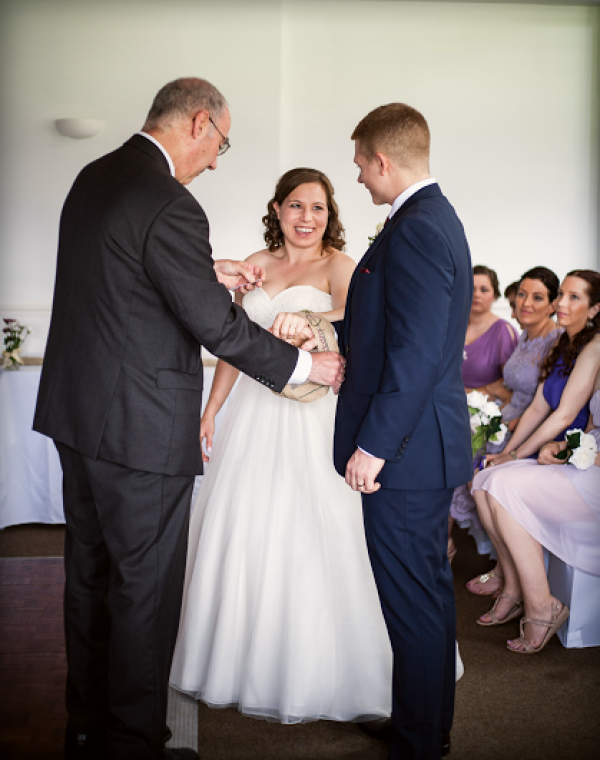
by Michael | Jul 26, 2016 | Blog
What do you think of, when you’re planning your big day? Is it the celebrations afterwards? Maybe it’s the location, catering, guests and a great band. But haven’t you forgotten something rather important?
What about the ceremony itself?
That’s really what the day is all about, so let’s look at how we can make the most of that.
There’s no choice
People believe that the ceremony has to follow a set formula. It’s either a full religious or a register office service, surely? Well, no, not necessarily.
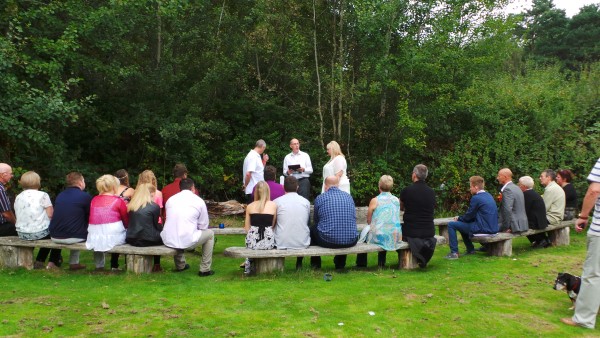
Supposing you don’t relish much (or any!) religion in your ceremony? Supposing you want something more than the rather sterile register office wedding that is the same for everybody? Maybe you want an unusual venue – outdoors, perhaps. Then consider a celebrant. He or she will be able to work with you, suggest readings, music and rituals, and help you build exactly the service that you choose – from start to finish.
The celebrant can’t do the legal bits – you still need the registrars for that, but you can accomplish that at the register office a day or two before, or else, if you’re using a licensed premises, the registrars will come along, and you can have your bespoke, celebrant-led service after the legal part.
3 important points
When considering a celebrant, there are three areas to pay special attention to:
- Beliefs – you may want to compromise, of course (your parents may be paying for your wedding; you may be a mixed-faith couple etc.), but you only need to include as much religious/spiritual content as YOU WANT. It is your event, after all!
- Planning – work together (as a couple) with the celebrant to ensure the rituals you would like are included. You have input into everything from readings to readers, choreography, rituals and music.
- Time – don’t underestimate how long it may take to construct the perfect wedding (and that goes for the celebrations too).
To summarise:
- Work together as a pair (good practice for your married life!) and decide what you really want for your wedding. Remember it is YOUR day, although be prepared to compromise a little.
- Do work with your celebrant to come up with the ceremony that will be most meaningful.
- Start the process early.
- Look forward to a most wonderful day!!
Cover photo courtesy of www.leerushby.com
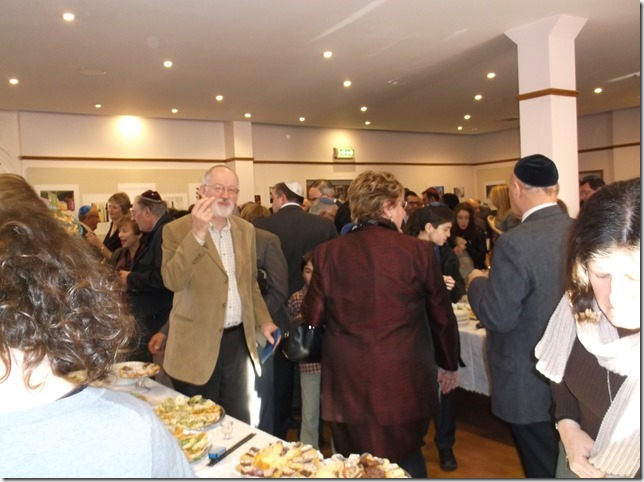
by Michael | Jul 19, 2016 | Blog
We’ve all heard how costly it is to arrange a wedding. But what about being a wedding guest? That can be almost as dear!
Of course, it depends on expectations. If you’re invited to a destination wedding, how much money will you be asked to stump up? (Don’t forget that that would be in addition to the present.)
What if the wedding list the couple publish demands outlay approximating to the National Debt?
What if you’re genuinely struggling to make ends meet, but really want to support the couple?
![DSCF0126[2]](https://vowsthatwow.co.uk/wp-content/uploads/2016/01/DSCF01262.jpg)
One Solution
A very simple solution is to (politely) refuse the invitation or explain you have a prior commitment. That is probably not all that satisfactory (especially if you want to attend, but prefer to avoid embarrassment). If you do decide to give it a miss, don’t leave your response till the last moment. Do give maximum warning (so the couple has the option of inviting someone else in your stead). And leaving it too late can mean that the couple are charged for a meal you had no intention of attending, which is really inexcusable.
A more comfortable solution
If you genuinely can’t afford the expense, you may have to come clean. Explain this to your friends/family. Perhaps you can attend the ceremony (after all, that is – or should be – the important bit) and then leave. You might still be able to offer a small gift.
If the couple really are your friends, they will understand and respect your decision.
[On another level, there might not be this dilemma, if the couple’s wedding list contains a few items that are, shall we say, more affordable anyway – but, of course, that is not something you can control.]
The best solution?
Another suggestion is to explain that your budget won’t stretch, but that you would like to take the couple out to a show/dinner/concert another time. That way you can have some valuable quality time together (which you can’t at the wedding, of course) and show that you value their friendship.
There’s nothing to stop you sending them a lovely, personal congratulatory good wishes card, which is a lovely touch.
Openness (and tact!) should allow you to suitably mark the occasion for your friends without breaking the bank or losing their friendship.
by Michael | Jul 12, 2016 | Blog
If you had the choice to go out with your wife to a pub quiz or to attend a Death Cafe, which would be the more appealing?
Well, obviously (or there’d be little point in this article!), I opted for the Death Cafe. I didn’t really know what to expect, except that the agenda was to talk about death and also consume some cake and coffee.
Arrival
So I showed up at the West Hampstead cafe at the appointed hour, to a warm welcome from the twin organisers. We were to comprise a baker’s dozen – apparently a small number compared to more-established cafes. However, there was also a film crew, which I had not anticipated!
Slightly unbelievably, they had found us from Quebec. They were filming an international documentary for TV5 (I think) on life transitions. There are apparently some 3,000 Death cafes across the world, since Jon Underwood started the whole thing off in 2010, and they had chosen us!
People were free to opt out of the filming, and the crew was extremely discreet and professional. Initially, the idea of talking to strangers about death might have been a wee bit inhibiting, even without cameras and microphones in the vicinity, but we soon accepted it.
What actually went on?
The evening was divided into two parts after sustenance had been ordered. (The meeting was free, as this is a non-profit-making organisation, but we were encouraged to spend at least £8 a head to recompense the cafe-owner for staying open exclusively for us.)
First, we sat in small groups, with a facilitator at each table. Nothing was prescribed. We started by introducing ourselves (in the knowledge that all our conversations were confidential). We explained why we had turned up that evening. A number already had had experience of other Death Cafes, but quite a few were newbies like me.
One explained how she had very recently lost a friend, and had had no opportunity to discuss her feelings. Another was a psychotherapist, who was working more with older people, and was interested in seeing what was on offer here. I had come out of curiosity, and to see if, with my funeral experience as a civil celebrant, I might be of any help to others.
The conversation – often punctuated with laughter – meandered around various subjects, and the facilitator did not have to work hard to support us. Everyone was respectful and prepared to listen, and an hour soon passed.
After a break, we reconvened in one big circle. Most of those present were probably in their sixties or thereabouts, and the vast majority were female. We mentioned themes we had discussed separately in groups, and developed them. There were a few silences this time, but the conversation grew apace, and this hour also went very quickly.
What is the point of a Death Cafe?
According to the website, www.deathcafe.com, the objective is ‘to increase awareness of death with a view to helping people make the most of their (finite) lives’. The meeting is a discussion group, rather than grief support or counseling session.
Would I go again?
It was good talking freely about a taboo subject, and I think it was a very useful – as well as enjoyable – exercise, and one I would be prepared to repeat. Every meeting is different, not least because the mix of people is different.
Whether I would have had such a worthwhile evening at the pub quiz is quite a moot point!
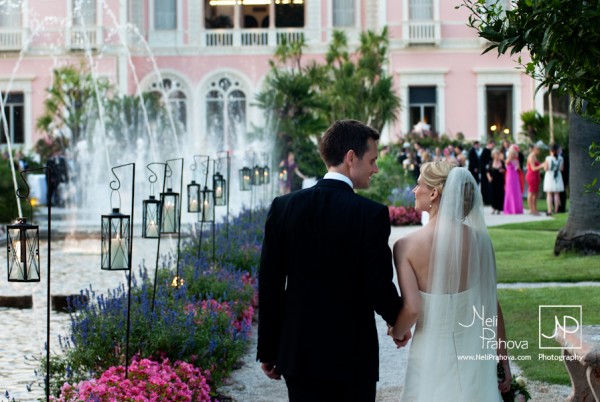
by Michael | Jul 11, 2016 | Blog
Being in the wedding industry means you are part of people’s biggest day. I am very privileged to work as a civil celebrant, and serve my clients by creating and conducting the ceremony itself.
Others contribute with their own specialisms. Who do you go to, if you want to organise a destination wedding? Or your honeymoon?
Obviously, a travel agent. There are a lot of them out there, though.
I recently met Uli Williams, who is an independent Travel Counsellor. When she had explained to me how she can arrange all this – and with the personal touch – I thought I should share her offerings with you, my readers, so this week’s blog is written by Uli. Enjoy!
Turning Your Dreams into Reality

Isn’t it exciting to organise your Big Day, looking forward to tie the knot with your loved one?
I know that planning your wedding day and honeymoon is one of the most exciting periods of your life – but it’s often among the most stressful! From grand arrangements to the finer details that make your wedding unique, there’s plenty to organise to ensure that you get hitched without any hitches. As your personal Travel Counsellor, you can relax while I take care of it all for you.
We can discuss your personal ideas and requirements to create your hen and stag dos, dream wedding day and honeymoon to remember.
Perhaps it’s against a backdrop of azure seas, with soft white sand between your toes. Maybe it’s a New York party into the early hours after a wedding in Central Park?
Whatever makes up your unique vision for the perfect marriage, I can make it happen for you.
Travel Counsellors offer a unique ‘Honeymoon Gift Registry’ which will enable your guests to give you the most memorable gift of all – the honeymoon of your dreams. This registry service works much like the usual department store wedding list, except that your wedding guests can contribute monetary amounts towards your honeymoon plans.
If you have decided to get married abroad, maybe just the two of you or with a close circle of family, why not have a wedding blessing after your return to the UK, allowing your wider family and friends to celebrate your wedding and share your happiness?
If you are looking for a memorable, meaningful ceremony, think about using a civil celebrant. With his/her advice and guidance, you can enjoy that unique experience that reflects your personalities and beliefs. Why not give Michael Gordon, at Vows That Vow, a call? He is passionate about making your day just as you want. www.vowsthatwow.co.uk
Get in touch with me for your personalised, professional wedding planning!
Contact: Uli Williams, Travel Counsellor
E: uli.williams@travelcounsellors.com
T: 07739 184865 or 01992 877 390
Webpage: www.travelcounsellors.co.uk/Uli.Williams
Thank you so much, Uli.








